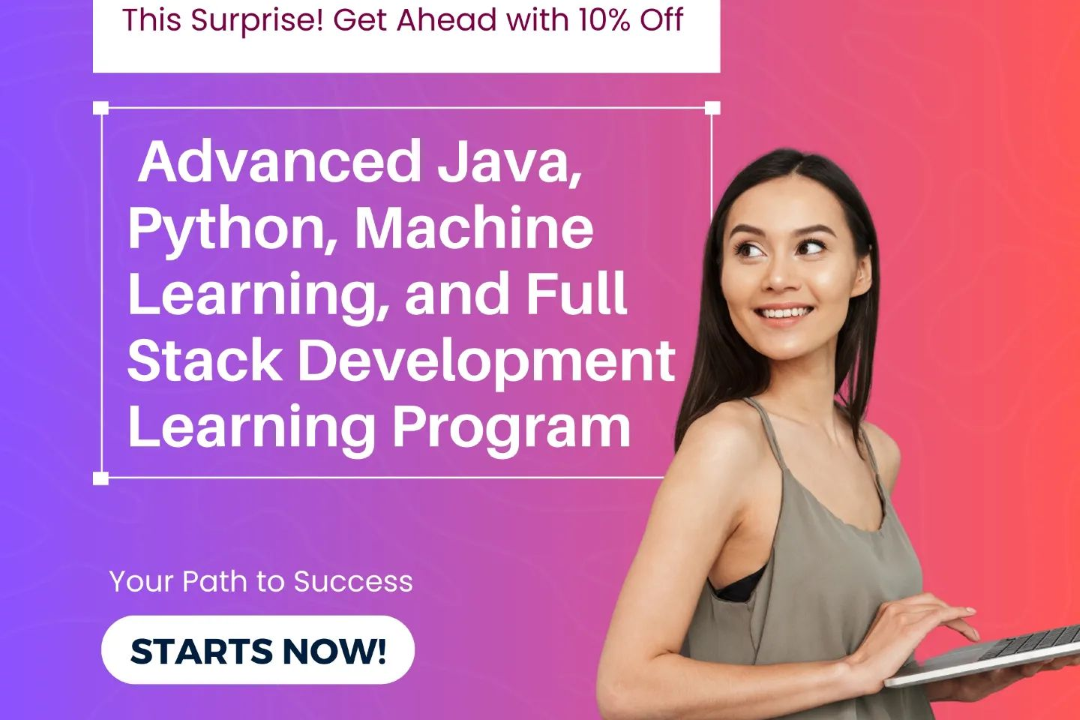python programming syllabus
Comprehensive Python Programming Curriculum
python programming syllabus
The Python Programming syllabus typically covers the fundamentals of the Python language, including data types, variables, control structures (such as loops and conditionals), functions, and modules. It progresses to more advanced topics like object-oriented programming, exception handling, working with external libraries, and data manipulation using libraries such as NumPy and pandas. The syllabus may also encompass practical applications such as file handling, web scraping, and creating simple graphical user interfaces, as well as an introduction to web development with frameworks like Flask or Django. Overall, the curriculum aims to build a strong foundation in Python programming while enabling students to apply their skills to real-world scenarios.
To Download Our Brochure: https://www.justacademy.co/download-brochure-for-free
Message us for more information: +91 9987184296
1 - Introduction to Python
Overview of Python, its history, and its applications. Discuss the philosophy of Python and its significance in today’s tech world.
2) Setting Up the Environment
Installation of Python and setting up IDEs (e.g., PyCharm, VS Code). Introduction to using Jupyter Notebooks for interactive coding.
3) Basic Syntax and Data Types
Understanding the basic syntax, variables, and data types in Python (integers, floats, strings, lists, tuples, sets, and dictionaries).
4) Control Structures
Introduction to decision making structures (if statements, else, and elif). Looping structures (for loops and while loops) will also be covered.
5) Functions and Modules
Defining functions, scope of variables, and return values. Understanding Python modules and how to import them.
6) Error Handling and Exceptions
Techniques for handling errors with try, except, and finally blocks. Best practices for writing robust code.
7) File Handling
Reading from and writing to files. Understanding different file modes and working with text and binary files.
8) Object Oriented Programming (OOP)
Introduction to classes and objects. Concepts of encapsulation, inheritance, and polymorphism in Python.
9) Data Structures
In depth look at built in data structures (lists, sets, and dictionaries) and their methods. Covering the complexity of data operations.
10) Libraries and Frameworks
Introduction to important libraries such as NumPy (for numerical computing), Pandas (for data manipulation), and Matplotlib (for data visualization).
11) Web Scraping
An overview of web scraping techniques using Beautiful Soup and requests library to retrieve data from websites.
12) Testing and Debugging
Techniques for debugging Python code and introduction to unit testing using the unittest framework to ensure code reliability.
13) Introduction to APIs
Understanding REST APIs, making HTTP requests with the requests library, and parsing JSON responses.
14) Basic Concepts of Data Science
Overview of how Python is used in data science, including an introduction to data analysis with Pandas and visualization with Matplotlib.
15) Final Project
A hands on project that incorporates the skills learned throughout the course. Students will design and develop a small application or data analysis project.
16) Version Control with Git
Introduction to git and GitHub for source control, branching, merging, and collaboration among coding projects.
17) Best Practices and Code Style
Introduction to Python Enhancement Proposals (PEP) 8 guidelines for writing clean and readable code.
18) Career Pathways
Discussion on career opportunities in Python development, data science, and automation, as well as how students can further their skills post training.
This structure provides a comprehensive overview of what can be included in a Python programming training program, allowing students to gain a robust foundation in Python and its applications.
Browse our course links : https://www.justacademy.co/all-courses
To Join our FREE DEMO Session: Click Here
Contact Us for more info:
mern stack training in bangalore
Flutter Training in Uchgaon
Machine Learning in Python for Beginners
iOS Training in Rayachoti
Java Top 50 Interview Questions 2024











